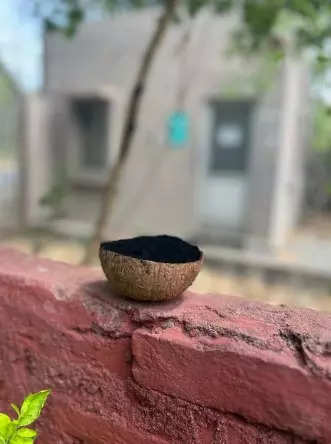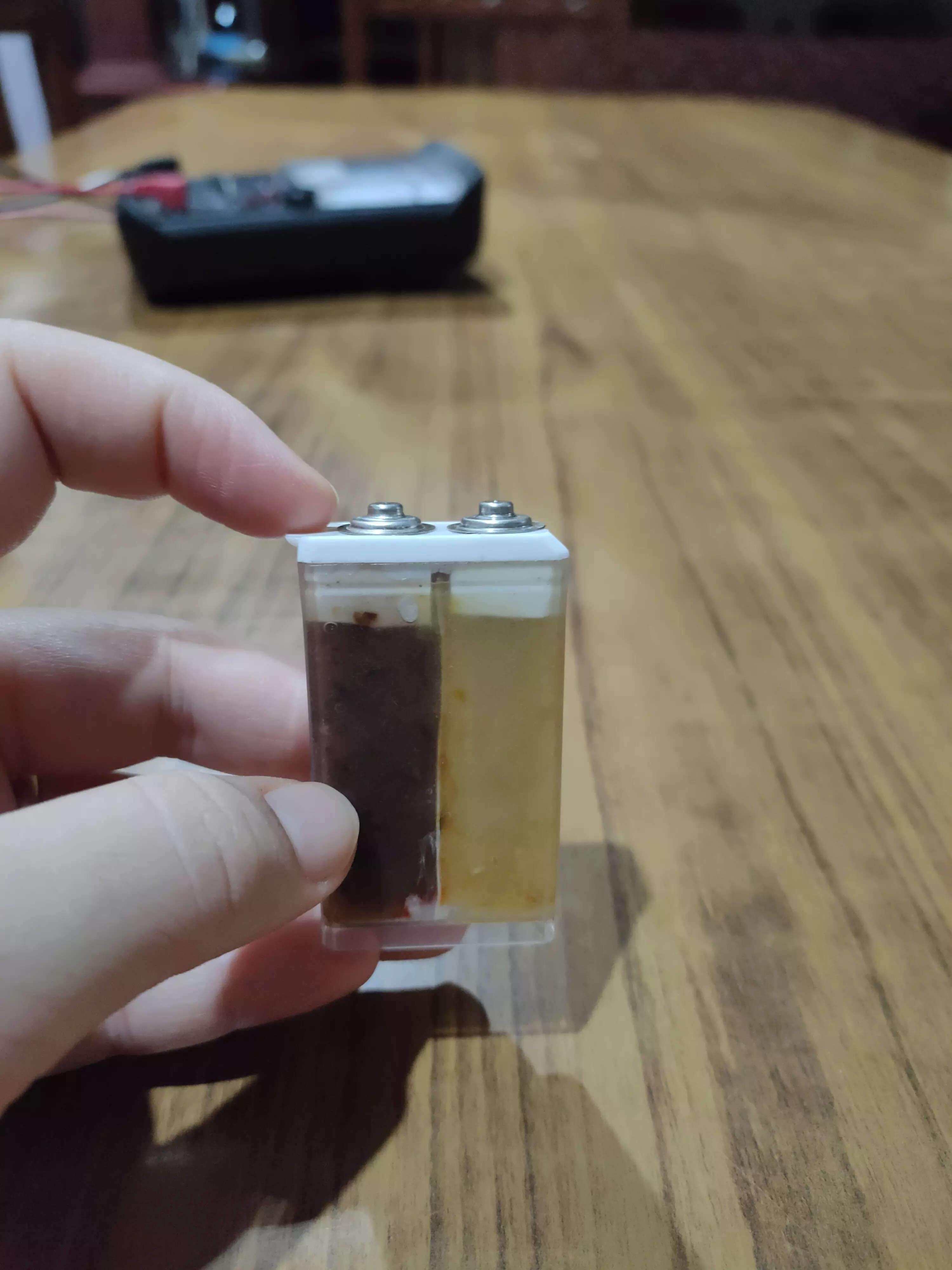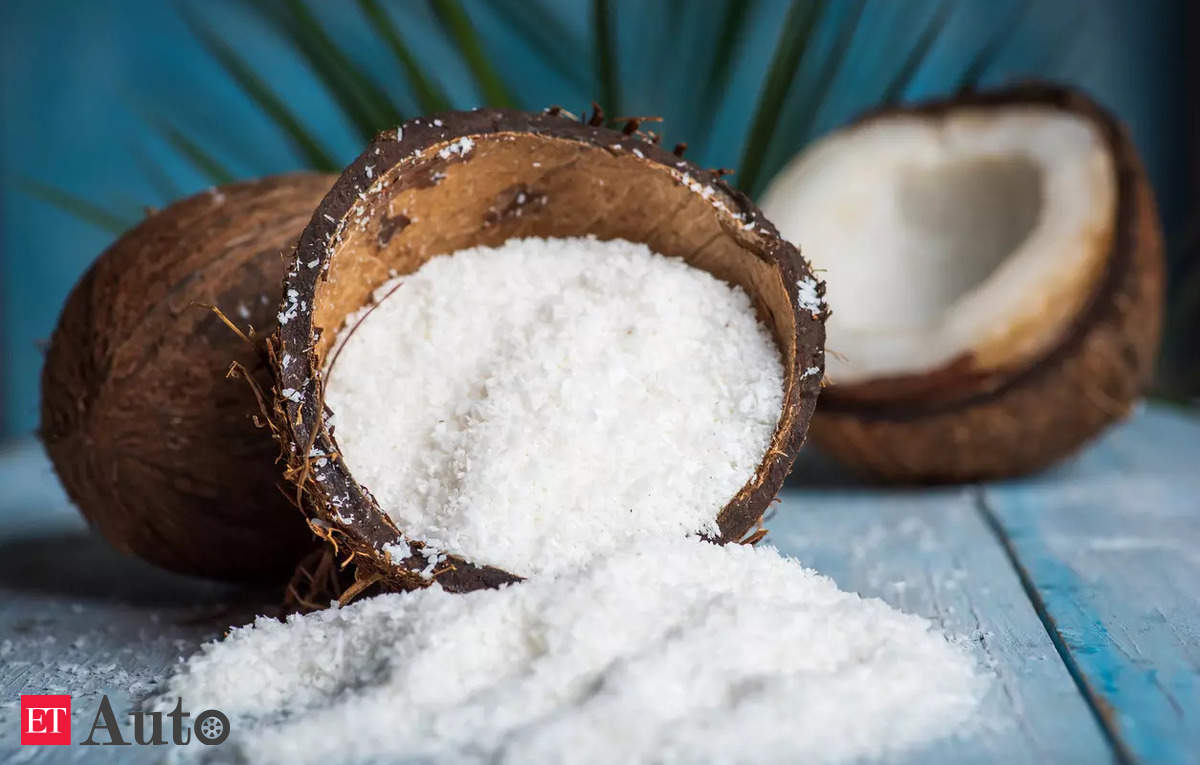New Delhi:Slowly where people are adopting EVs as a mode of transport, a major unaddressed concern is about the battery’s charging efficiency and its decomposition. Now, the Indian startups are racing ahead of the world to offer sustainability in the electric batteries.
Two twin sisters have decided to take the road of sustainability through biodegradable batteries. The three and a half year old company, Nexus Power has chosen crop residues to not only decarbonize batteries but also to reduce air pollution.

Another startup is using coconut powder to enhance the efficiency of lithium-ion batteries. The idea which was meant for the co-founder’s thesis has given him a groundbreaking solution for improving charging efficiency in EVs batteries. Cancrie, a four year old startup, chose coconut as its main ingredient after experimenting with 14 other biomass products.

Betting on innovation
Cancrie has already received and filed for patents. “Cancrie owns three patents. One is for the process, another one is on the carbon specs and its performance in lead acid batteries, and the third is on the carbon process, properties and how it is performing in the lithium ion battery,” said Akshay Jain, CEO and Co-founder, Cancrie.

The twin sisters, who founded Nexus Power, Nikita Baliarsingh and Nishita Baliarsingh are sustainable phonetics. “We wanted to use a material which was, first, abundantly available in India, second, which was renewable, and lastly, which wasn’t as expensive, which could be harnessed at a cheaper price, that results in cheaper batteries and that is where we stumbled upon the main element that we use,” Co-founder and CIO Nikita Baliarsingh told ETAuto.

“We have 50 plus patents filed and I think ten or eleven of them are granted in India and we are still in the process of filing in the United States,” said Baliarsingh. The company is currently into its market trials to test its product and to commercialize their products after a year. Nexus is currently trying to test its battery packs in two-wheeler and three- wheeler electric vehicles and grid storage applications.
Cancrie, is owned by two friends who hold equal shares in the company i.e 42% each, “ We are using coconut powder in lithium batteries to improve the efficiency,” Jain added. Nexus bets on Peptides, “Peptides are smaller forms of proteins, so we use peptides,” said, CIO of Nexus.
Cancrie target INR 3 crore revenue in FY2024-25. In FY24, it did around INR 4 lakh from the sales of the material. However, the co-founder added they have got two paid contracts worth INR 1 crore.
Talking about the pricing of a battery pack, Singh said, “We aim to price it about 25- 30% cheaper because our raw material is cheaper than lithium.”
Challenges
Manufacturing becomes a crucial issue to address for Cancrie, thus, they aim to 5x their current manufacturing capacity. While for Nexus the biggest concern is the dissolving of the materials.
“We are producing carbon material to cater to 6MWh of battery production per month. This is the pilot scale where we are now. …. The demand, which we are already getting from just 1-2 customers, I am talking about the fairly sized MSME, is in the range of 30-50 MWh per month. What it means is that we really have to expand Big in the near time to come”, Jain added.
“Because the composition electrolytes are mostly salt combinations, if you have two different kinds of materials on the anode in cathode, the biodegradable material has this vulnerability to start dissolving in that composition itself, ” Baliarsingh added.
Cancrie has already raised INR 4.2 crore from grants and contracts, talking more about it the co-founder said, “I would say INR 1 crore came from the equity or the investors and remaining INR 3.2 crore came from the grants and the paid contract. From companies like Act for Environment, and also Royal Academy of Engineering from the UK, and others.”
To address this challenge, and to strengthen the R&D of the company, the CIO said, “We raised around INR 1.2 crore in grants and INR 3.3 crore in our fundraising round in 2022…So total about INR 4.5 crore is what we’ve raised from grants and equity.”
The company is currently having its second fundraising round from which it aims to raise INR 20 lakh-INR 25 lakh.





